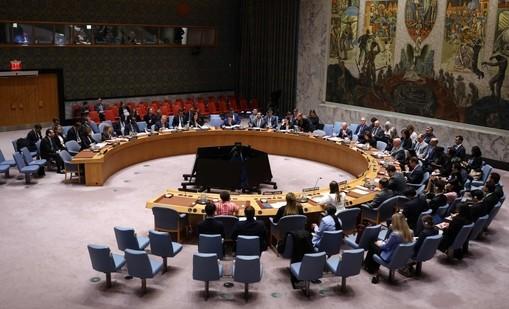
Was LeT involved? UNSC asks Pak on J&K attack, refuses to accept ‘false flag’ claim
The United Nations Security Council (UNSC) has been engaged in a heated discussion over the recent Pahalgam attack in Jammu and Kashmir, with members questioning Pakistan’s claim that the incident was a “false flag” operation. The closed-door meeting, requested by Pakistan, saw UNSC members refusing to accept the narrative and instead asking if the terror outfit Lashkar-e-Taiba (LeT), based in Pakistan, was likely involved in the attack.
The Pahalgam attack, which occurred last week, left several tourists injured and has sparked widespread outrage and concerns over the rising threat of terrorism in the region. Pakistan, however, has been quick to deny any involvement in the attack, instead blaming India for the incident and claiming that it was a “false flag” operation designed to discredit Pakistan.
But UNSC members were not convinced by Pakistan’s claims, with some reportedly expressing skepticism over the lack of concrete evidence to support the narrative. Instead, they focused on the possibility of LeT’s involvement, citing the group’s history of carrying out attacks in the region.
The LeT, also known as the Army of the Righteous, is a Pakistan-based terrorist organization that has been responsible for numerous attacks in India, including the 2008 Mumbai attacks that killed over 160 people. The group is known for its strong anti-India stance and has been accused of receiving support from elements within the Pakistani military and intelligence agencies.
UNSC members also drew attention to the targeting of tourists in the Pahalgam attack, with some suggesting that the incident was a deliberate attempt to create fear and uncertainty among visitors to the region. The targeting of tourists on the basis of religion, they added, was a disturbing trend that required urgent attention and action.
The UNSC meeting comes at a time when tensions between India and Pakistan are running high, with the two countries engaged in a bitter border dispute over the disputed region of Kashmir. The Pahalgam attack has only added to the tensions, with both countries trading accusations and counter-accusations over the incident.
Pakistan has been accused of using terrorism as a tool to achieve its strategic objectives, including the annexation of Kashmir. The country has been linked to numerous terrorist attacks in the region, including the 2001 Parliament attack in New Delhi and the 2019 Pulwama attack in Kashmir.
India, meanwhile, has been pushing for Pakistan to take concrete action against terror groups operating from its soil, including the LeT. The country has also been seeking international support in its efforts to combat terrorism and has been pushing for stricter sanctions against Pakistan-based terror groups.
The UNSC meeting is seen as a significant development in the ongoing standoff between India and Pakistan, with the international community being asked to take a stronger stance against terrorism and hold countries accountable for their actions.
In conclusion, the UNSC’s refusal to accept Pakistan’s “false flag” narrative on the Pahalgam attack and its questioning of LeT’s involvement in the incident is a significant development in the ongoing standoff between India and Pakistan. The international community must take a stronger stance against terrorism and hold countries accountable for their actions. It is only through collective action that we can bring an end to the cycle of violence and promote peace and stability in the region.



